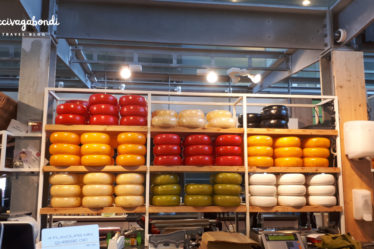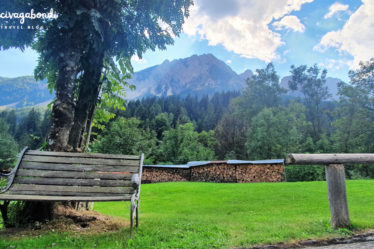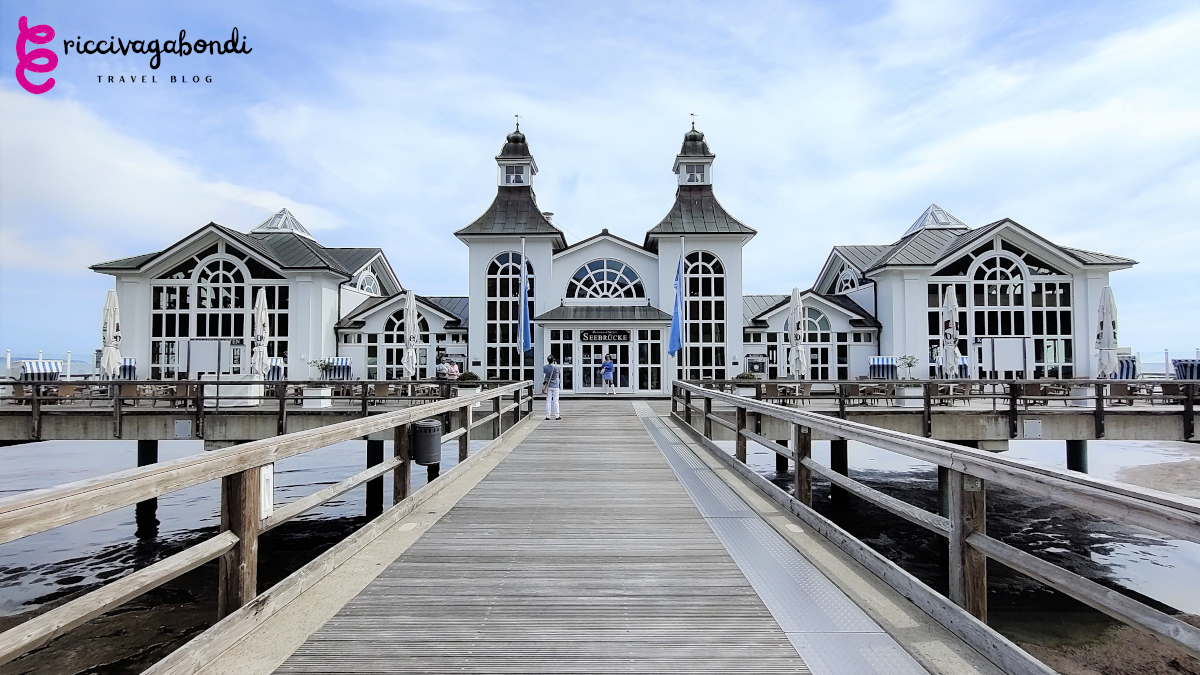
Dear Wandering Spirit,
In summer 2021, I travelled around north Germany, the place I am currently living in, and I had the chance to visit some amazing spots by the Baltic Sea. My travel itinerary included Hamburg, Lübeck, Schwerin, Wismar, and further east, also Rügen island.
And this is my travel budget in north-east Germany 🧭
Travel to North Germany
Travel by plane / train / car
There are two airport solutions you should consider when travelling to north Germany. Berlin with its restyled Brandenburg airport (BER) is served by almost all flight companies (to say, both line and low-cost).
Therefore, the cheapest solutions usually vary from 20 € / 21 $ for European flights (usually Ryanair) to 80 € / 86 $ p.p. per flight. The nice part is that all these flights are either direct or short trips (under 3 hours travel time). If you are coming from overseas, you might consider flying over London to Berlin or Hamburg too. 💺
Hamburg is served by several companies, but it is more expensive than Berlin. 70-90 € / 75-97 $ is the minimum fare I have experienced when flying from/to Hamburg in the last few years. In west Germany, you can opt for further nearby airports like Bremen or Hanover, and then get a train to Hamburg quickly.
Main modes of transport
When moving from one place to another (e.g., Hamburg to Lübeck), you can get a train, bus, or rent a car to be more flexible. Car rental usually starts from 40 € / 43 $ per day for a compact car.
Ride-sharing services like BlaBlaCar are quite common in Germany. Remember to check these out too if you are more a spontaneous traveller. 🚘 The price range is varied. A FlixBus fare is about 10 to 30 € / 11-32 $ p.p., a train ticket is 30 to 50 € / 32-54 $ (depending on the ride, time and distance).
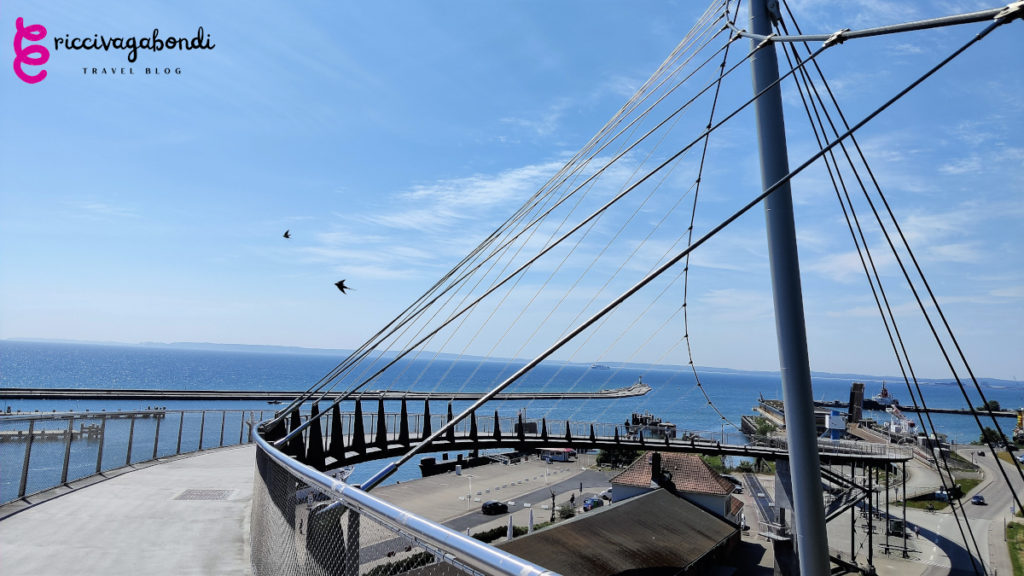
Transport around the city
Within cities, you can either walk (in places like Lübeck, Schwerin, and Wismar) or choose from several means of transport (in bigger cities like Hamburg). When on Rügen island, the best way to get around is by bike, but you might want to consider car too as the island is quite big.
Bike rental in more touristic places like Rügen island costs around 10 € p.p. / 11 $ per day, but some hotels offer you even better prices. One last thing about city transport: In Hamburg there are many different solutions available (e-rollers and electric mopeds for instance), 🛴 public and private bus transports (via MOIA).
A taxi ride from the airport to the city centre is around 30 € / 32 $. Public bike sharing is incredibly cheap; the first 30 minutes of every journey is free, but you must sign up and download the app.
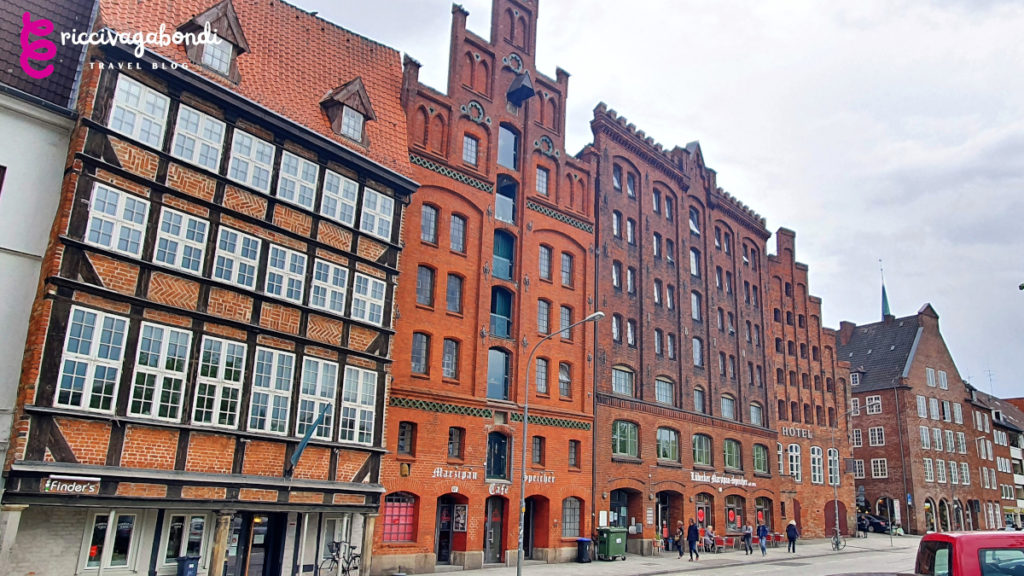
Accomodation in North Germany
Where to stay in north Germany
In Germany, I am a big fan of Prizeotel. This economy design hotel chain has rooms all over the cities and at very competitive prices. In Hamburg city centre, a double room costs around 70 – 80 € / 76-86 $.
You might want to treat yourself, though. If you opt for boutique hotels, prices start from 150 € / 162 $ for a double room in peak season. In Hamburg, there are so many beautiful boutique hotels like Tortue, Lindtner, 25hours at the harbour, and so on. In off-peak seasons, you might spend around 100 € / 108 $ for a double room. 🏨
On Rügen island you could experience a more rural and simpler lifestyle, to switch off from daily routines. For this reason, I recommend B&B solutions at typical houses, thatched cottages, bungalows and so on. If you book in advance and with a bit of luck, you won’t spend more than 50 € / 54 $ per day.
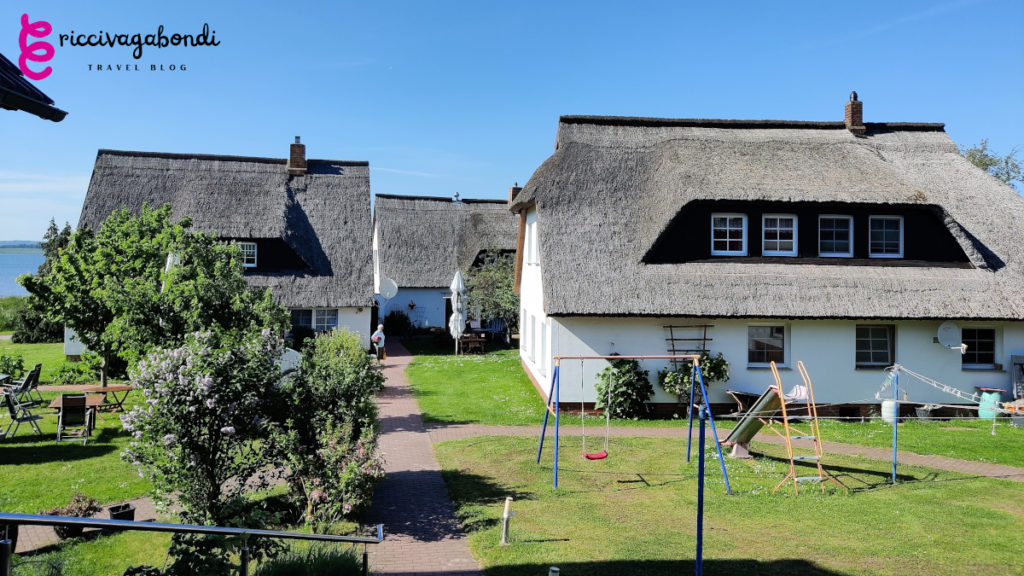
Where to eat in north Germany
I am the kind of person who wants to get the most out of a journey. For this reason, I usually book only breakfast at hotels, because I like to discover the local cuisine and not have a fixed lunch or dinner schedule.
When walking around, you can get a plain black coffee for 1-1.50 € / 1.10-1.60 $ or a cappuccino for 2.50 € / 2.70 $. The fancier it is, the more expensive it will be. ☕ Many places offer a free refill for good will: reusable coffee mugs are smart, eco-friendly, and absolutely in.
If you are travelling e.g., from south Europe, you will have a culture shock as water is usually expensive (2.50-3 € / 2.70-3.20 $ for a small plastic bottle); here this is perfectly normal, though.
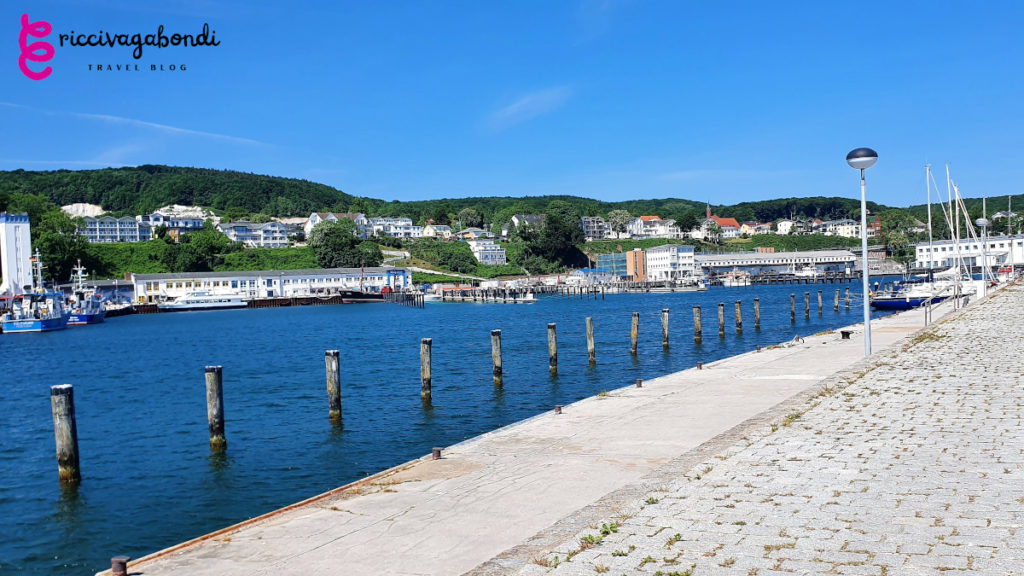
Street food is mostly fish, and generally with salt and vinegar. A fish bun costs around 2.50-3 € / 2.70-3.20 $. Add 2 € / 2.20 $ for fries and a few more euros for a drink. Your culinary street food experience in north Germany won’t cost you more than 10 € / 11 $ total. I recommend this solution for lunch to keep it short and simple. 🥨
There are many cuisines from all over the world you can go for. Burger plates are everywhere, as is local cuisine in traditional “Gaststätten” or “Gasthofe”. Plates vary from 10-20 € / 11-22 $ and you will be full within few minutes.
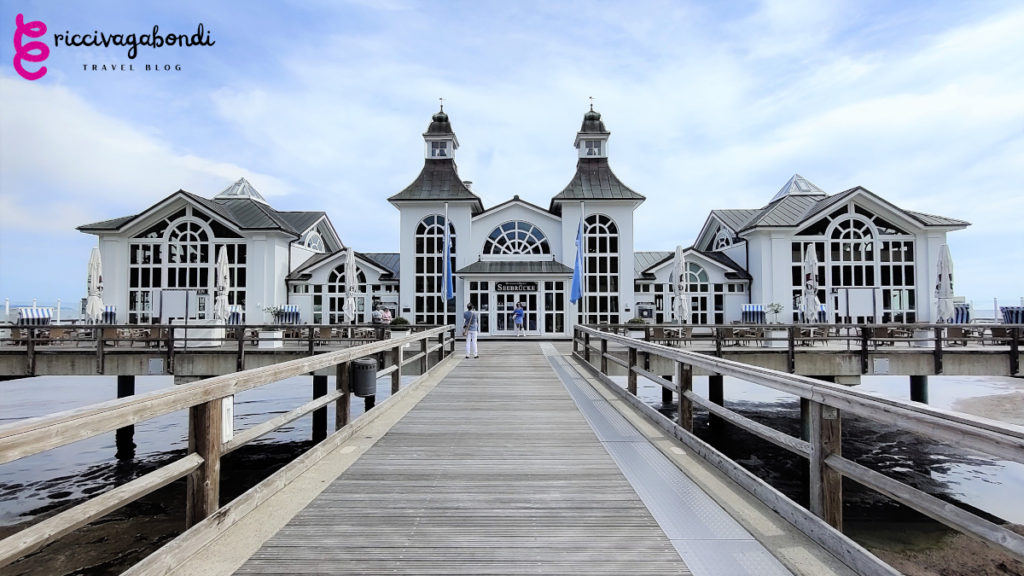
Sight-seeing / Activities
Museums & Activities
I travelled around north-east Germany mostly to get fresh air and discover beautiful landscapes (the woods and the sea) and watch truly lovely cities in this northern part of the country.
If, in Hamburg, you are into museums and sight-seeing, I can only recommend the Hamburg City Pass. You can choose the number of days that fits you most (from 1 up to 7), where the 3-days-pass costs about 66 € / 71 $. It might seem expensive, but it includes city tour by bus, harbour tour by boat, free entry to many sites, plus city transport. Additionally, this pass offers discounts for many restaurants and local shops. 🛍️
Instead, if you mainly wish to get around the city and have some discounts at museums, but you are not sure how many and which ones to visit, then opt for the Hamburg Card: 3 days (single user) costs around 28 € / 30 $.
Bike rental - Costs
Consider around 10 € / 11 $ per bike per day, where e-bikes are priced over 20 € / 22 $ per day.
Since the weather is quite unpredictable and usually windy, always remember a windbreaker, a small scarf, sunglasses, and a backpack to stuff all your clothes in if needed. 🌦️
When on Rügen island, always check the bike rental service of your hotel stay (and beach chair service too). You might get cheaper prices this way.

Shopping & Souvenirs
If you are searching for sea-inspired souvenirs, you will be spoilt for choice at the many local shops all along the Baltic coast. From small pirates, coffee cups and tea pots, little ships in a bottle, up to spices, mix tea bags and funny plastic ducks. 🦆
You should stick between 20-30 € / 22-32 $ per person per day.
I recently bought a set of brown ceramic handmade calyx and a terracotta horn as present for my family in Italy. The gift was really appreciated!
Unexpected Costs
I always count 100-150 € / 110-160 $ per trip just to be sure.
Cut these costs by being prepared prior to travel! By doing that, I rarely exceed my extra budget of 50 € / 55 $.
Especially if you are renting a bike, you might want to look for the route before jumping on two wheels. Be prepared: take with you a small bike phone holder to check your maps.
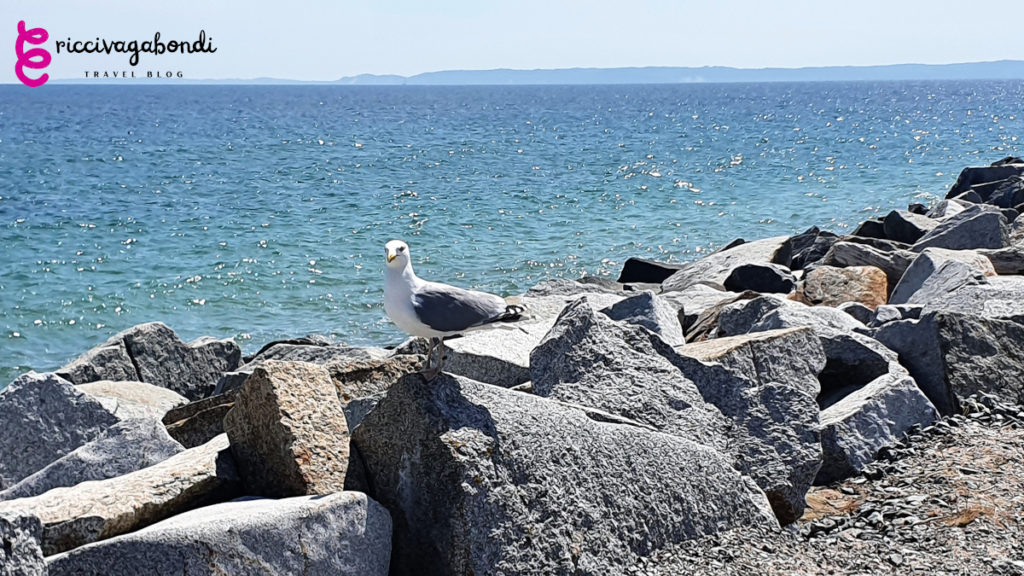
North Germany Travel Cost Breakdown
- Flight 100 € / 108 $
- Museum pass 65 € / 70 $
- Extra costs 50 € / 55 $
- Accommodation 7 x 80 € / 7 x 86 $
- Transport from/to cities 3 x 20 € / 3 x 22 $
(let’s say airport to city A, city A to city B, city B to airport) - Bike rental 7 x 15 € / 7 x 16 $
- Food/drinks 7 x 25 € / 7 x 27 $
- Activities/Pocket money 7 x 25 € / 7 x 27 $
around 185 € / 199 $ per person per day.
Travel Organizer North Germany
Let us get down to the nitty-gritty to organize your travel to North Germany at best.
Currency – Germany’s currency is the Euro(€). As orientation,
1 € corresponds to 1 $. Use one of the many money converters for real-time results, like themoneyconverter.com.
Language – German is Germany’s national language. English is the second most spoken language, due to the many international workers and tourists.
Power plugs – Voltage is 230V, frequency is 50 Hz. Sockets are of type C & F.

Weather – North Germany is always windy, chill and usually rainy. It does not mean there are zero sunny days, but the weather is pretty variable throughout the day. Make sure you always have both a rain jacket (and waterproof shoes), a scarf, and sunglasses. Temps in winter reach 0 °C, and may reach 30-33 °C in summer. During mid-seasons, weather is quite stable around 15-17 °C. UTC +1 (standard time)/+2 (summer time).
Main cities – In the north, Berlin is the biggest city, followed by Hamburg, Bremen and Hanover. Lübeck, Kiel and Rostock are important Hanseatic Cities too.
National public holidays – Festive day may vary from one federal state to another. All Länder have some festive days in common, like the Feast of the Ascension (Christian festivity, celebrated 39 days after Easter, usually between May and June), Pentecost (50 days after Easter), and the National Day (Oct 3rd).
Top 3 festivals – Deichbrand Festival (rock & pop music festival), Wacken Open Air (metal & hard rock), Kieler Woche (sailing event with around 3.5 mio. visitors each year).
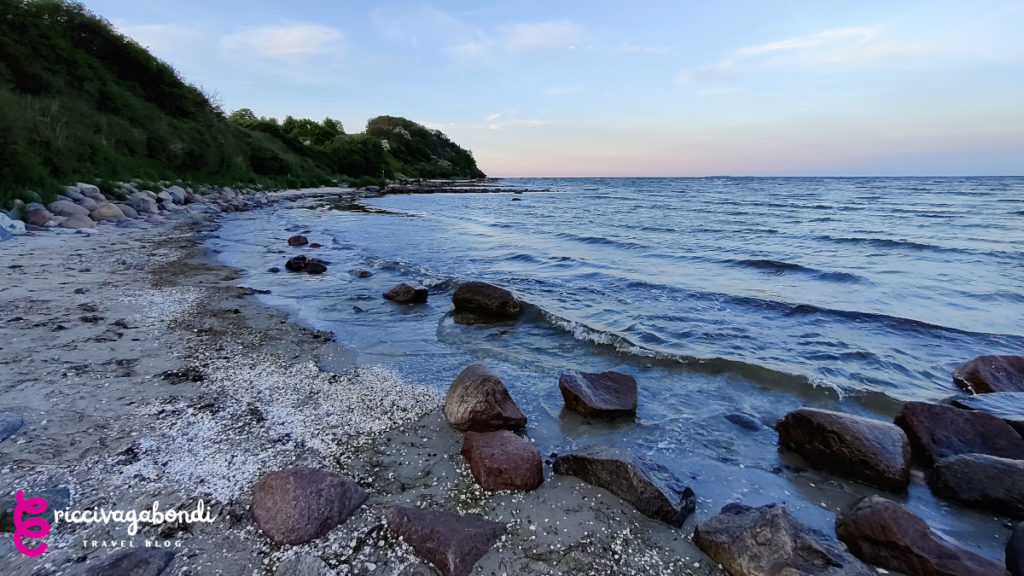
Check out my north Germany travel journal for more info about what to see and do during your stay in this beautiful country!
Also, subscribe riccivagabondi travel blog now to get many other useful travel recommendations. 
Useful links
German train line “Deutsche Bahn“ – https://www.deutschebahn.com/en
Ride-sharing “BlaBlaCar” – https://www.blablacar.co.uk/
Public bike sharing “Stadtrad” in Hamburg – https://stadtrad.hamburg.de/en
“Flixbus” bus travel service – https://global.flixbus.com/
MOIA transport service Hamburg/Hanover – https://www.moia.io/en
Hamburg Card (basic card) – https://hotelbuchung.hamburg.de/hamburg-card/
Hamburg City Pass (extended card) – https://www.turbopass.com/hamburg-city-pass
Bike rental option no. 1 in Hamburg – https://www.hhcitycycles.de/en/
Bike rental option no. 2 in Hamburg – https://www.zweiradperle.hamburg/en/bike-rental/
Bike rental option no. 3 – https://www.erfahre.com/en/#rental
Prizeotel economy design hotels – https://www.prizeotel.com/


